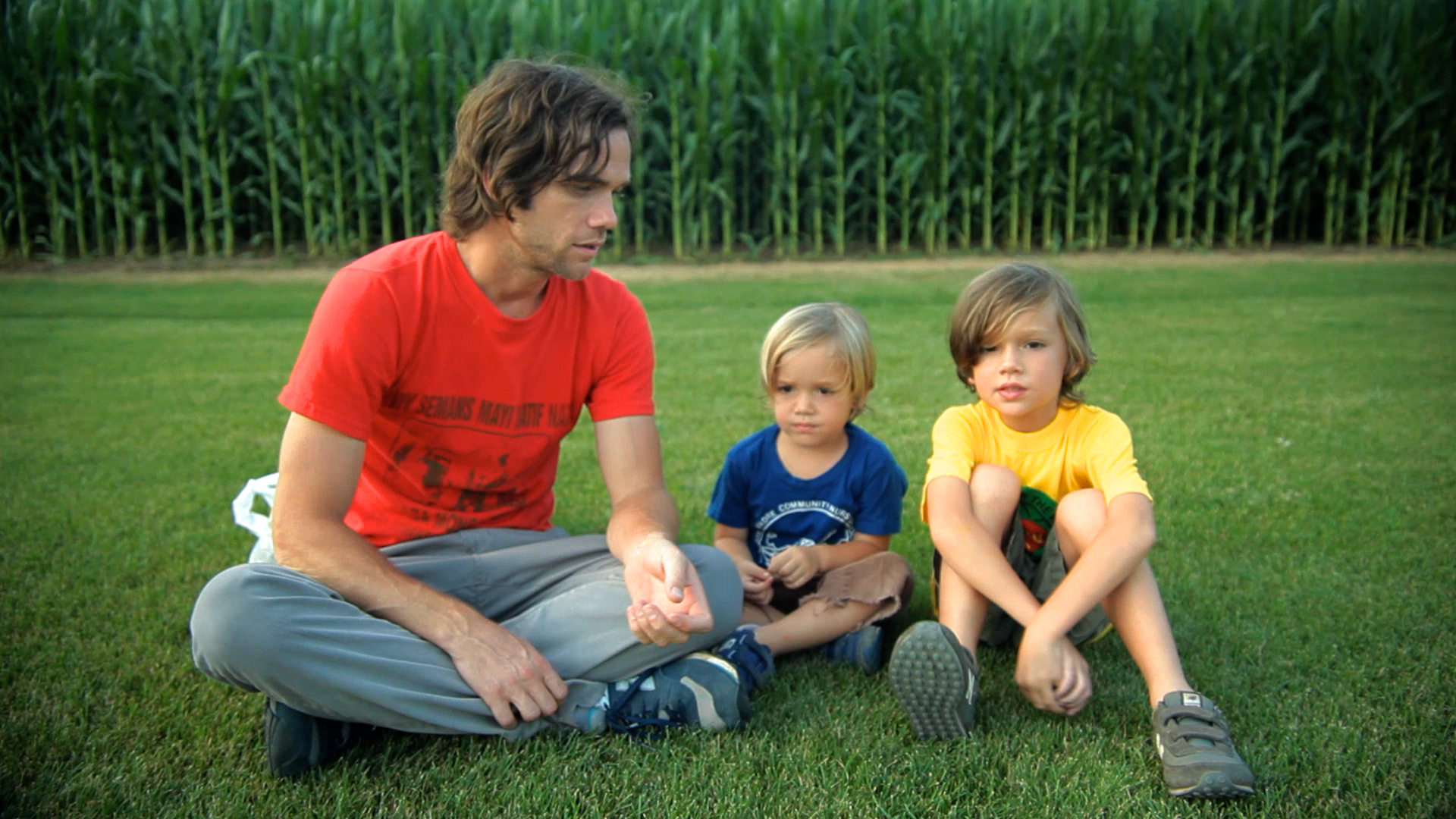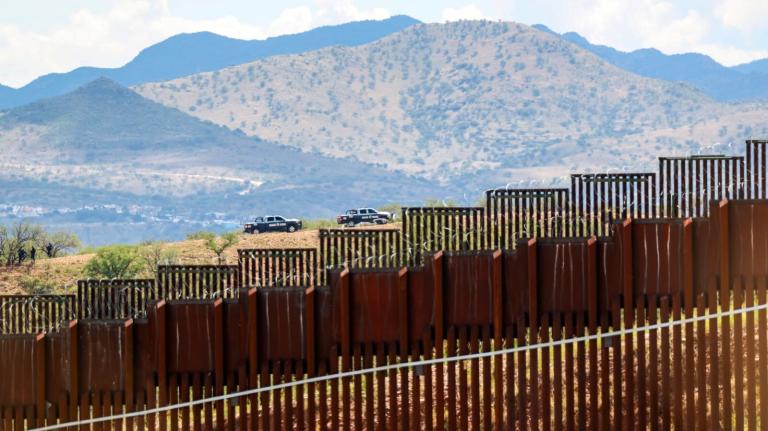I didn’t think I’d like GMO OMG, because it looked like an outrage documentary. You know the type: They’re films that ask viewers to pound their fists with righteous indignation at the evil deeds they reveal. My problem with outrage documentaries is that the form pushes directors to overstate their case and ignore nuance. I can’t enjoy a good fury fest when I’m aware that someone is trying to manhandle me into anger.
When I got a chance to watch GMO OMG before its release I figured I’d last for a few minutes, then switch it off. But I surprised myself by lingering until the end, and enjoying it. GMO OMG is an outrage documentary: It starts with the premise that GM food is frightening and demands that the audience get angry. But that’s not all it is. Director Jeremy Seifert accomplishes something remarkable when he turns his camera on his family: In those moments the film feels utterly honest, rather than manipulative. You can take issue with the facts Seifert marshals against GMOs, but there’s no arguing with his love for his sons, or his frustration with the opacity of the food system. A hail of arguments and counterarguments are hurled back and forth every day in the debate over GM food. But all this arguing never changes the way people feel. So it’s refreshing to see a work that gives emotion its due.
I called Seifert to chat with him about food, fatherhood, and fear.
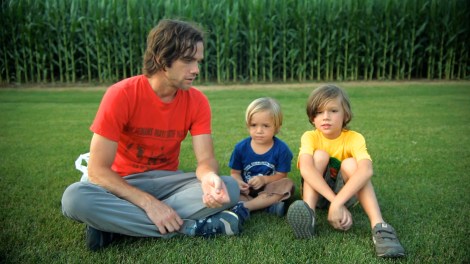
Jeremy Seifert and his ridiculously adorable sons.
Q. I liked your film, but I need to admit right off the top that I felt the parts that dealt with science were a little misleading. This debate gets so mired in facts and science that what’s neglected is the feelings behind the facts. I think that’s what your film really did well: It has real emotional honesty. I don’t want to get mired ourselves, but I just wanted to give you a chance to respond to that.
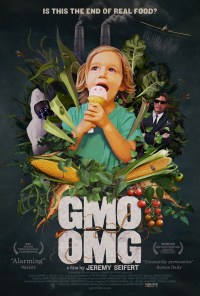 A. No, I appreciate you being a good reporter, and being honest. I guess I’m curious which scientific facts and information you were bothered by or felt like weren’t dealt with accurately, because there were not that many, honestly. I didn’t really dig too deep into the scientific aspect, it was almost more of the cultural phenomenon of our widespread ignorance because I feel that we’ve been intentionally kept in the dark, and then asking the question, ‘How is it possible that we’re all eating this every single day, and no one even knows what it is?’
A. No, I appreciate you being a good reporter, and being honest. I guess I’m curious which scientific facts and information you were bothered by or felt like weren’t dealt with accurately, because there were not that many, honestly. I didn’t really dig too deep into the scientific aspect, it was almost more of the cultural phenomenon of our widespread ignorance because I feel that we’ve been intentionally kept in the dark, and then asking the question, ‘How is it possible that we’re all eating this every single day, and no one even knows what it is?’
Q. There certainly is a tendency for science to reduce things to a scale that’s easily studied. And when you do that, you end up leaving things out. But a lot of the scientists I’ve talked to do see the big picture: They’re looking at ecology as well as genetics, and they’re just so frustrated in trying to explain over and over again what they’ve learned. So I’ve come to have sympathy for the scientist who can come off as abrupt.
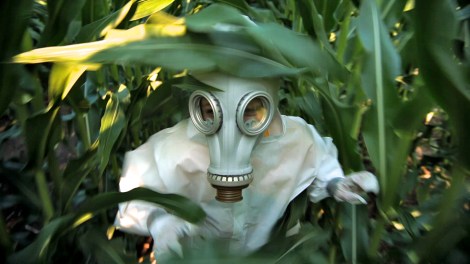
A. I think the key is misappropriation of science, what Wendell Berry calls “our ignorant arrogance.” And I really feel like GMOs are the sort of pinnacle achievement of the industrial agribusiness / agri-science model, enabling more pinpointed patenting of products that are leased to farmers. All these things that, when we say them to our children, and look at the children’s perspective, they seem obviously wrong and not the best way forward.
Q. When you try to explain GMOs to a child, or just explain what it means for a seed to turn into a plant, you end up using simple metaphors to capture something complex. I might say a seed is a tiny baby, and if you plant it, it can grow up. You said that GMOs are this pinnacle of industrial agribusiness: In some ways it’s a great metaphor for the whole industry. So I wonder if you think there’s some extent to which GMOs are a metaphor for out alienation from our food supply. Yeah, we’re concerned about transgenics, but maybe on a deeper level what actually bothers us is that we’ve had no clue about all the crazy stuff scientists and farmers have been doing to our food for decades.
A. I think they’re beyond metaphor — I think GMOs are really the embodiment of arrogant ignorance. Here we are futzing with genomes, which we really don’t understand. I prefer to ask, where are the scientists who are looking at this from a completely different perspective, and what beautiful amazing things are they finding? Like the Rodale study that shows that organic can have the same yields. No toxic chemicals, no synthetic fertilizers, and just as much food! As we look at our children and try to leave the earth better than we found it, I want to look at those solutions and those approaches. I want to look toward the goodness and necessity of biodiversity, of the small and decentralized — all these things that we’re sort of slowly waking up to, but the big machine isn’t letting go of them easily. GMOs also represent that mindset and that big mechanized, industrialized —
Q. Moloch.
A. Yeah, Moloch! I mean, honestly.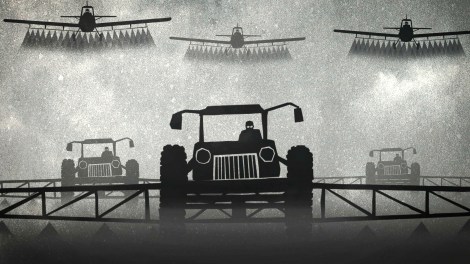
Q. You were talking about how science makes mistakes and how we were, and still are, operating from under a position of ignorance with GM food. We certainly were back in the ’80s — biology textbooks from the ’80s are completely obsolete at this point. In any case, I have a Wendell Berry quote in return for you, he points out that we are always ignorant — we’re always in a rush to attain certainty, but we never do. He says: ‘The real question that is always to be addressed is the one that arises from our state of ignorance: How does one act well — sensitively, compassionately, without irreparable damage — on the basis of partial knowledge?’ And I think that cuts both ways. You don’t have to have perfect knowledge to try to and do your part. That there are truly responsible scientists who are working with genetically modified food — no, they don’t have perfect certainty about what they’re doing, but they took it really slowly in the beginning, and mapped out the possible problems and proceeded sensitively. And these efforts get tarred with the same brush because of the association with this modern Moloch, of industry, and centralization, and just general ugliness.
A. To think the world is black and white is always wrong, is always fiction. Again, to go back to Wendell Berry, our poet and guide, he said, if we were to divide this into two camps, I think we’d have to divide it into exploitation versus nurture. Are you a exploiter or are you a nurturer? Like you said, there are scientists working on [GMOs] who really maybe are pure souls, good hearts; I think that’s always going to be the case. I think, though, that those scientists, if they are working for the industry, or with the industry’s money that’s going into all our college campuses, that, again, you have to go back to the corporate mindset. And if the corporation is controlling our food, and their giant chemical companies have to ask: ‘How can we turn a profit? We are beholden to our shareholders to always progress, increase. So how do we get short-term gains, regardless of long-term sustainability?’
Q. There’s this scene where you’re talking about how there’s BT in corn, and pesticides growing in corn is really pissing you off, and you’re ready to get into a fistfight about your kids eating pesticides. It doesn’t piss me off for my daughter to be eating that. But there are other things that do piss me off: It pisses me off that when she walks outside the front door there’s this terrifying, deadly environment with cars whizzing by, which are really likely to kill her if I’m not right there. An environment that we’ve designed — talk about hubris! So I guess the question is, why, of all the potential dangers in the world, do you think this is the one that captured your passion and creative energy?
A. What first captured my imagination was the peasant movement of Haiti marching in the streets, saying, ‘We’re gonna burn these seeds.’ I had been to Haiti before the earthquake, and seen how devastated that country is, for so many reasons. That’s a very complex situation.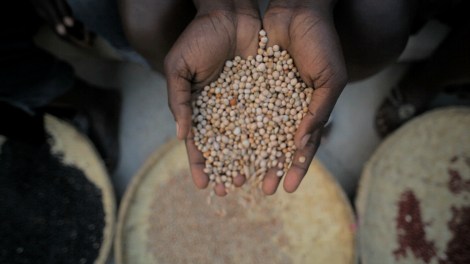
And so the fact that these peasant farmers, rural farmers, were willing to burn seeds, that really captured my imagination, and I didn’t understand it. I was kind of like the people I interviewed on the streets in the film. You know, ‘GMOs, is that like McDonald’s? Or what the hell is that?’ So that kinda first captured my imagination. But to get a little bit more to the heart of your question: I think the very intimate relationship that food is with nature, I think it’s our most intimate relationship with the world around us, that we take it into our bodies.
Q. It’s our most intimate relationship with other species, certainly.
A. With my children, I have that responsibility to feed them, so that already intimate relationship becomes that much more intense. And I think that just the idea for me that chemical companies were essentially feeding us really disturbed me, and I really didn’t like the feel of that, just as an emotional reaction. And I think that as I looked into it more, and started reading … I mean, are you 100-percent confident in their safety that you will feed your children GMOs?
Q. I’m not 100-percent confident — I’m operating from a state of ignorance, or partial knowledge. It definitely worries me a lot less than many things. I’m much more comfortable feeding my daughter BT corn than corn sprayed with organophosphates, that’s for sure.
A. Sure, or strawberries coated in methyl-iodide. I’m more comfortable feeding my kids organic sweet corn than GM sweet corn. Not only more comfortable, I refuse to feed them genetically modified sweet corn, because I am operating from a position of ignorance, and I don’t see anyone saying: ‘Here’s the raw data. We’ve got nothing to hide, we’re proud of this.’
Q. Is there anything I haven’t asked you that you’d like to hit before we finish up?
A. The power of a film is to — if it’s a good film — allow people to feel something. And in a documentary you have to also learn something; it has to span both those. I just feel like we never had the discussion in this country about GMOs. And so I hope the film can be a part of what’s already happening, and what your work is also doing. It raises questions, it helps people see something they may have never seen, and awakens them to something. I hope it’s like a primer, and I hope it’ll inspire people to go out and read those deeper works, and explore the issue.

